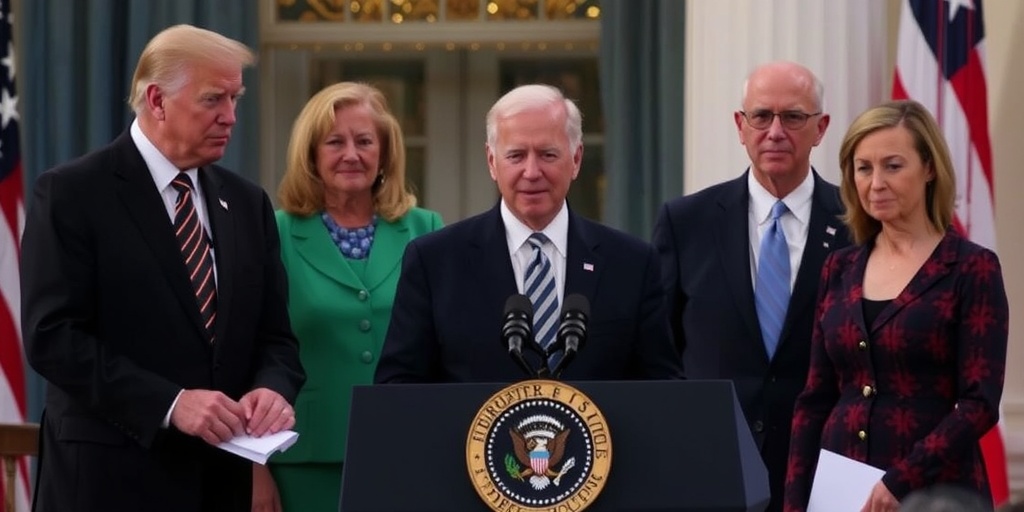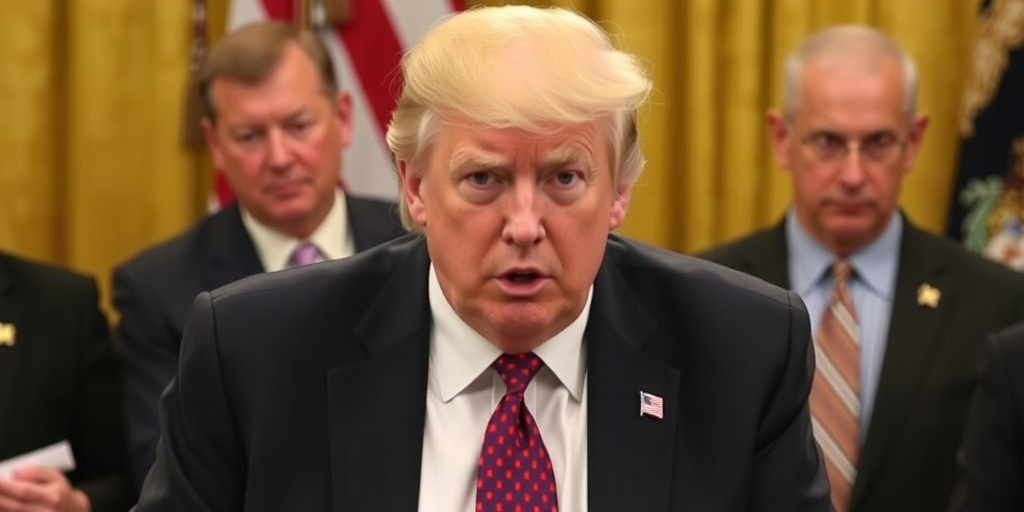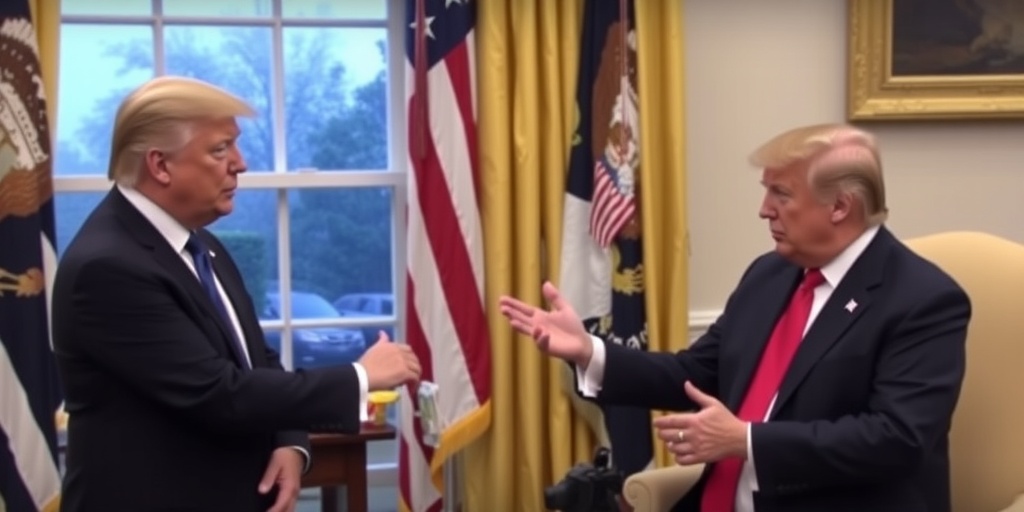Now Reading: Embracing a New Identity in the Trump Era
-
01
Embracing a New Identity in the Trump Era
Embracing a New Identity in the Trump Era

Exploring Masculinity in Today’s American Society: A Look at Male Perspectives Amid Politics
In the wake of President Trump’s re-election, a notable cultural shift appears underway regarding perceptions of masculinity. Many supporters of Trump perceive his victory as a resurgence for traditional male identities, viewing it as a rejection of movements like #MeToo and an assertion of a right for men to embrace their "manliness" without societal repercussion. The messaging from Trump’s campaign emphasized a need to restore male status in society, resonating particularly with Republican men who feel marginalized by contemporary cultural discussions surrounding gender.
Vice President JD Vance echoed this sentiment during a recent conservative gathering, urging men not to internalize negative messages about their identities or behaviors. According to a Pew Research Center survey conducted during the campaign, nearly half of Republican men believe that American society harbors negative views about masculine men—a stark contrast to about a quarter of the general populace. This survey also indicates a broader societal desire for a more nuanced understanding of masculinity, as many men are not interested in a return to hyper-masculine ideals characterized by aggression and stoicism.
Indeed, the data suggests a complex relationship between contemporary masculinity and traditional gender norms. While many men support the idea of masculinity being redefined in positive terms—favoring kindness and emotional openness—there exists a perception among some Trump supporters that societal progress has skewed against men. Despite maintaining traditional masculine ideals, many of these individuals do not necessarily subscribe to macho or sexist beliefs. Instead, they feel that progressive conversations around gender roles have gone "too far."
Interestingly, the Pew survey revealed that a majority of respondents believe American society places disproportionate emphasis on traits such as physical strength and risk-taking, while insufficient emphasis is placed on being caring and emotionally expressive. Furthermore, significant numbers—including Republicans—condemn certain male behaviors, such as objectifying women or excessive drinking.
While President Trump, with controversies surrounding his attitudes towards women and his administration’s policies, seems to deliver mixed messages, the administration itself argues that it is committed to improving women’s lives through measures like expanding access to IVF and advancing women’s roles in government. Critics, however, point to the contradictory nature of these claims given the administration’s record on issues such as reproductive rights and the treatment of women in the workplace.
Young men, who notably shifted towards Trump in the recent election, have been raised in an era where traditional gender roles are evolving. Many have witnessed their mothers in the workforce and noted that women are increasingly excelling in education. This has not precluded them from being concerned about negative portrayals of men in society. Young men express a desire for society to embrace a fuller, less reductive version of masculinity that acknowledges their emotional complexities.
The narrowing definition of masculinity appears problematic to many young men today. As highlighted by Logan Fischer, a 21-year-old from Missouri, the dominant narrative often paints men negatively, contributing to generational pressures that dictate emotional stoicism and aggression as the gold standard of male behavior. He argues that society is losing touch with the positive aspects of masculinity when it rigidly enforces a singular identity for men.
Moreover, the generational narratives tell a different story than what older men may believe. Even as men’s roles continue to shift, an overwhelming majority of younger men do not wish to revert back to an outdated model of masculinity they don’t know personally. Instead, they support a future where men can freely embody traditionally feminine attributes without stigma, as evidenced by their agreement on increasing emphasis on emotional intelligence and caring behaviors.
As the ideological divide regarding masculinity persists, both sides of the political spectrum continue to navigate their respective narratives. Older conservative men like Logan Roberts advocate for a return to traditional roles, claiming current societal structures favor women over men. However, the Pew survey shows that a minority of Republican men actually believe women’s progress has negatively impacted their standings.
Meanwhile, complex perspectives emerge from voices like Christopher Pontrella, a young trade worker who acknowledges the benefits of men being able to express vulnerability in workplaces. Through diverse viewpoints, it becomes evident that the conversation around masculinity and gender roles in America is far from black and white. The discourse shows a society grappling with evolving norms, where many men are eager to speak out against negative stereotypes while simultaneously seeking new, authentic identities in a rapidly changing world.
In conclusion, the conversation around masculinity in America reflects a nuanced and diverse array of opinions. Rather than settling for a singular traditional identity, many men are advocating for a broader understanding of masculinity that allows for emotional expression and challenges outdated gender norms. This redefined masculinity is not a rejection of manhood but rather an exploration of its rich, varied dimensions.
Stay Informed With the Latest & Most Important News
Previous Post
Next Post
-
 01New technology breakthrough has everyone talking right now
01New technology breakthrough has everyone talking right now -
 02Unbelievable life hack everyone needs to try today
02Unbelievable life hack everyone needs to try today -
 03Fascinating discovery found buried deep beneath the ocean
03Fascinating discovery found buried deep beneath the ocean -
 04Man invents genius device that solves everyday problems
04Man invents genius device that solves everyday problems -
 05Shocking discovery that changes what we know forever
05Shocking discovery that changes what we know forever -
 06Internet goes wild over celebrity’s unexpected fashion choice
06Internet goes wild over celebrity’s unexpected fashion choice -
 07Rare animal sighting stuns scientists and wildlife lovers
07Rare animal sighting stuns scientists and wildlife lovers




















